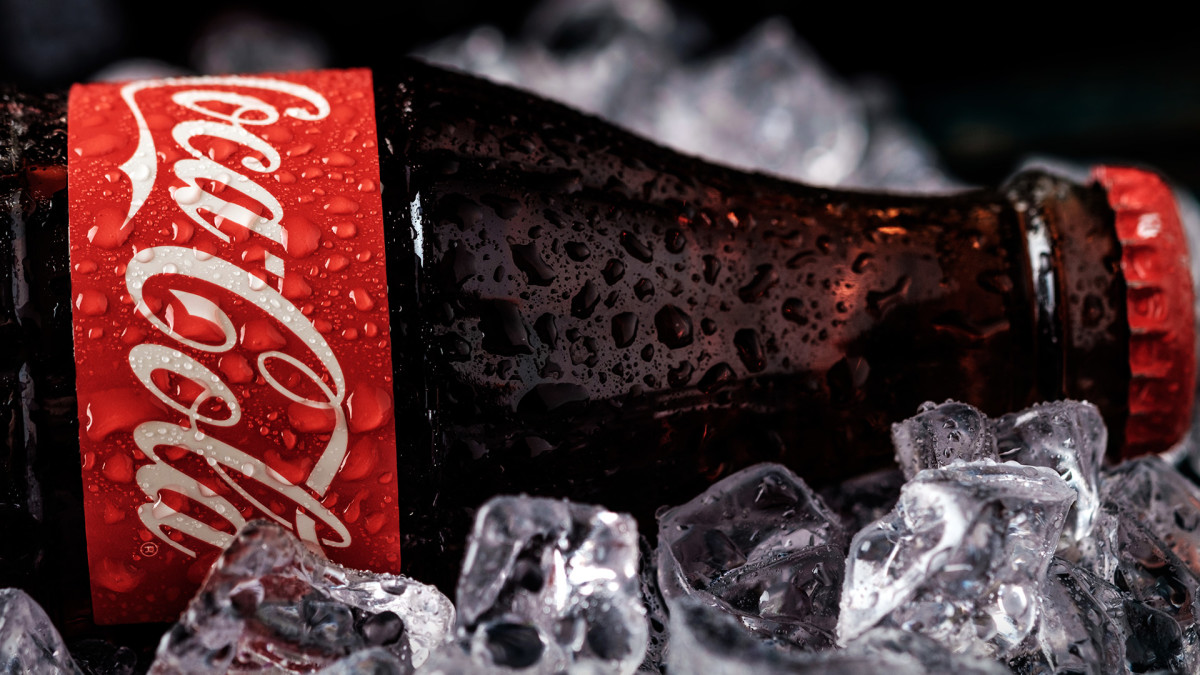I can’t drink Coca-Cola Zero because I think it tastes awful compared to regular Coke. And all that talk about being healthier because of no sugar seems like gibberish.
Coca-Cola Zero contains the artificial sweetener aspartame, which is shown to negatively affect metabolic health, potentially cause neurological problems, and possibly even have carcinogenic effects.
💵💰Don’t miss the move: Subscribe to TheStreet’s free daily newsletter💰💵
If I wanted an actually healthy option, I would squeeze my own orange juice. But if I’m in the mood for Coke after a heavy meal to help me digest, I want plain old Coke.
And it really helps. What’s more, I personally know doctors who unofficially recommend Coca-Cola for treating stomach flu. A few sips can help with nausea, because the soda contains substances that calm the stomach.
Related: Coca-Cola finally brings viral soda mash-up
There are different versions of Coca-Cola’s history. Some say it was invented as a patent medicine, containing an extract of the coca leaf — otherwise known as cocaine — which at the time was considered safe in small amounts.
The drink was brewed by pharmacist John Pemberton in 1886 and marketed as a tonic for various ailments including hangovers, hiccups, and headaches. Pemberton even claimed it cured his morphine addiction.
Fast forward 139 years and Coca-Cola no longer contains cocaine. Its taste is different from the original, but it remains the most popular soft drink in the world.
What’s more, a systematic review has confirmed a legitimate medical use for the beverage.
 A bottle of Coca-Cola soda.
A bottle of Coca-Cola soda.
Image source: Shutterstock
Coca-Cola helps with this gastric ailment
Believe it or not, Coke is a popular household cleaning and maintenance product. By now, we have all heard about many strange uses of the drink, such as cleaning toilet bowls, loosening rust, and removing stains. It is also used in some cooking and gardening applications.
Related: Coca-Cola brings back iconic 1980s soda flavor
But did you know that Coca-Cola can help with gastric phytobezoars?
A bezoar is a foreign body in the gastrointestinal tract, commonly found as a hard mass in the stomach. A phytobezoar consists of plant material, such as cellulose, that can’t be digested, writes The Takeout.
These masses can cause nausea, vomiting, and a lack of appetite. Thankfully, a proven phytobezoar treatment is none other than Coca-Cola.
One systematic study reviewed 24 papers on the matter, published from 2002 to 2012, and discovered that in “91.3% of the cases, phytobezoar resolution with Coca-Cola administration was successful, either as a single treatment (50%) or combined with further endoscopic techniques.”
Coca-Cola continues to dominate
The soft drink industry is projected to reach $660 billion by 2028, and 1.9 billion servings of Coca-Cola’s (KO) range of drinks are consumed each day around the globe.
More on soft drinks:
- Coca-Cola, Pepsi rival discontinues 3 popular soda flavors
- Coca-Cola brings popular TikTok soda craze to store shelves
- Popular beverage brand launches genius soda alternative
While corporate giants PepsiCo.Inc. and The Coca-Cola Corp. battle the global market for soft drinks, Coca-Cola is the world’s most valuable soft drink brand with a market capitalization of $308.90 billion. Pepsi is the next in line with $178.19 billion.
And despite the protests of Pepsi fans, there’s definitely something special about the taste of Coca-Cola. In the company’s first-quarter earnings call, when Coca-Cola CEO James Quincey was asked about the “wellness and functional” soda market trend, he explained that taste is still one of the most important factors.
“So taste is in my mind still going to remain primary, but to the extent there are consumers that were willing to trade taste for ingredients, absolutely, we will follow that trend,” he said.
Related: Haribo never intended for its bears to be this happy
Morgan Stanley analysts recently reaffirmed an Overweight rating on Coca-Cola stock, suggesting that it will continue to grow faster than its peers, especially in an organic sales category. Experts also praised the company’s pricing power, sustained market share gains, and benefits from the Fairlife acquisition.
Over the last five years, Coca-Cola shares gained 57.39%, currently trading at $71.77 per share.
Related: Veteran fund manager unveils eye-popping S&P 500 forecast
